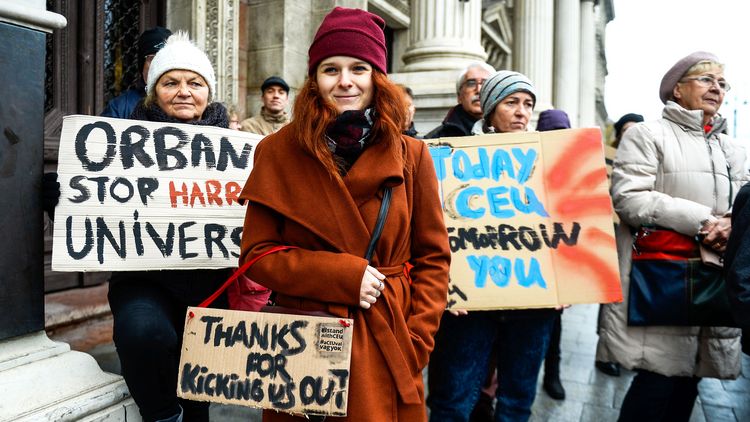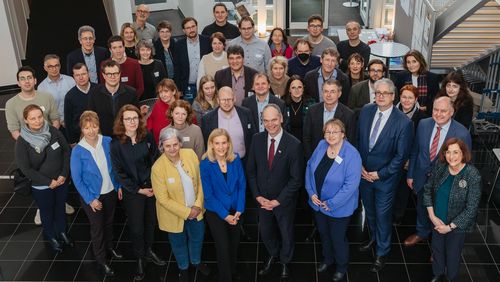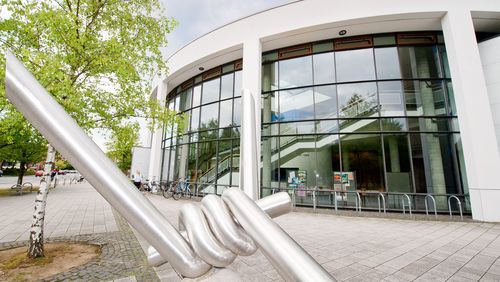Autocratic regimes, wars and political persecution put academics all over the world at risk. As a member of the international network Scholars at Risk, the University of Oldenburg helps scholars who have fled their home country.
January 2022: three deans at Boğaziçi University in Istanbul are dismissed for actively participating in protests against the rector appointed by Turkish President Recep Tayyip Erdoğan. Since the beginning of 2021, students and teachers protesting against the administration at this Turkish university, which is one of our university's partner institutions, have repeatedly faced harassment, arrests, dismissals and violence by the Turkish police.
These incidents in Istanbul are proof that freedom of research and teaching – a cornerstone of our democratic society — cannot be taken for granted. Military conflicts and political persecution pose a serious threat to researchers and students. In many places they can no longer go about their work or must even fear for their lives because of their research activities or for religious reasons. And although Germany tops the international Academic Freedom Index according to a report published in March, in many other countries academic freedom has declined in recent times and researchers are threatened by increasingly autocratic structures.
Academics who are in danger or have fled their home country can seek help from international organizations like Scholars at Risk (SAR), which was founded at the University of Chicago in the year 2000. The University of Oldenburg joined the network at the beginning of this year. "As a member of SAR, we help to provide refuge to affected academics and show our support for academic freedom across the globe," said University President Prof. Dr. Ralph Bruder.
Concrete support for those who need it
More than 500 universities and institutions from 38 countries are now members of the network, which raises awareness of attacks on academic freedom. SAR registered 280 such attacks in 2021, including disappearances and imprisonment of researchers, restrictions on their freedom of travel or dismissal from their academic post.
However, the main focus of the network's work is providing concrete assistance to at-risk academics. The partners in the network arrange temporary research and teaching positions for them in safe third countries. At-risk academics can also receive help unbureaucratically through emergency funds, for example if they are not yet able to leave their country and need to find shelter close to their current location.
The tragic consequences of the war of aggression against Ukraine are highlighting just how important this support is. Like millions of their compatriots, Ukrainian academics are being forced to flee. Entire universities and academic institutions have been closed or even destroyed. There are also reports of Russian and Belarusian students and researchers who criticize the war and fear persecution because of this leaving their home country.
Pooling information
The University of Oldenburg is also receiving requests for help. "These requests come from researchers at risk, some of whom are still in their home country and some of whom have already arrived in Oldenburg," reports Jenka Schmidt, head of the university's International Office (IO). Teaching staff who have contacts in Ukraine have also asked the university for help. Although the number of requests is manageable for the time being, Schmidt expects an increase in the near future.
In the meantime many universities, national and international institutions such as the German Academic Exchange Service (DAAD), and networks like SAR are pooling their information and setting up new assistance programmes. "This enables researchers at risk to continue their academic work for a certain period of time," says Schmidt. And ultimately, the host institutions themselves also benefit, she adds.
At the University of Oldenburg, the International Office acts as a bridge between the academics and the university's institutions. Schmidt explains that her team first checks whether the academic in question works in an area in which the university is also active. "If this is the case, we contact faculties and institutes, and together with our lecturers we work out what we can do." It's important to take the interests of the people concerned, but also the needs of the university into account in this process, Schmidt explains.
The International Office: dedicated support
"We also provide practical help in finding accommodation, organize networking events and offer advice on matters such as residence permits or insurance," adds Linda Book, the first contact person at the IO for researchers at risk. Together with her colleagues she helps refugee researchers to find suitable scholarships and funding. In its counselling services, the staff at the IO can draw on experience and structures established in 2015, when large numbers of refugee researchers and students, mostly from Syria, sought help in Germany.
For Book and Schmidt, helping threatened researchers and students is ultimately not only a professional task, but also a matter of personal conviction. "We have a clear message: come to us if you need our help," says Schmidt.




